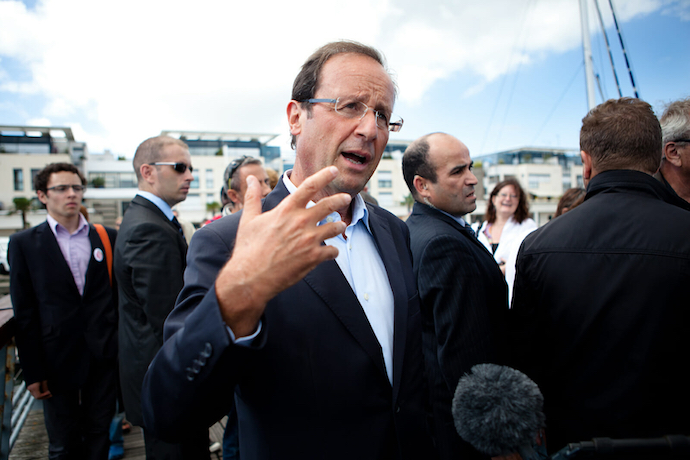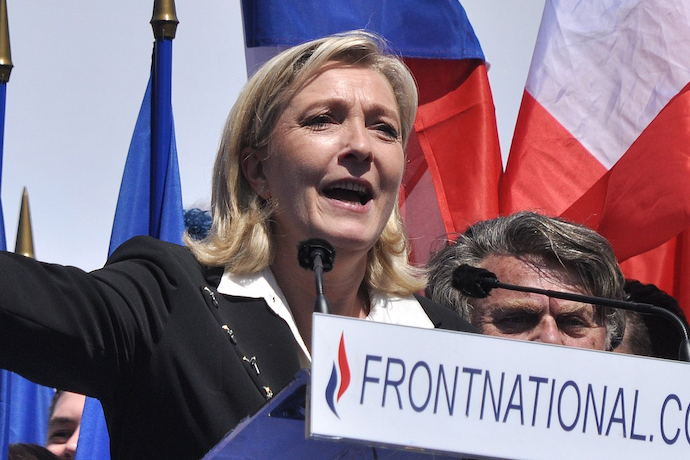The Platform
Latest Articles
by Mohammad Ibrahim Fheili
by Abidemi Alade
by Sheiknor Qassim
by Theo Casablanca
by Vince Hooper
by Samita Sajeevan
by James Carlini
by Sheiknor Qassim
by Samudrala VK
10
Restructuring Lebanon’s Banking Sector: A Roadmap to Regain Trust, Fairness, and Financial Stability
by Mohammad Ibrahim Fheili
by Mohammad Ibrahim Fheili
by Abidemi Alade
by Sheiknor Qassim
by Theo Casablanca
by Vince Hooper
by Samita Sajeevan
by James Carlini
by Sheiknor Qassim
by Samudrala VK
10
Restructuring Lebanon’s Banking Sector: A Roadmap to Regain Trust, Fairness, and Financial Stability
by Mohammad Ibrahim Fheili
Monsieur le Président, Que ferez vous? French Presidential Elections 2022
Can Emmanuel Macron win in 2022? He faces a tough electoral landscape.
With just a year left for France to choose its next president, Emmanuel Macron faces some tough challenges. Though Macron has yet to officially join the presidential race in 2022, whether for a second term in l’Élysée or for a lasting legacy, one question stands out: What does he plan to do?
A miraculous rise
Macron’s victory in 2017 was no less than a miracle. On April 6, 2016, Macron, who was then the Minister of the Economy, Industry and Digital Affairs, went against the government of President François Hollande and formed a new political party, La République En Marche! or simply, En Marche!. The reason for the separation was his deteriorating relations with Hollande and his Prime Minister Manuel Valls over certain economic policy proposals.
Unlike traditional political parties, En Marche! neither had a highly popular charismatic leadership nor bottom-up activism roots. Macron was little known by the wider populace. After conducting extensive research in the form of public interviews, Macron formed En Marche! as a centrist, liberal, and progressive political party. Membership was kept open to all irrespective of their party affiliations. When Macron announced his plans to run for the post of president, both Hollande and Valls termed this move as a “betrayal.”

With his intensive research and a wide media campaign, Macron was able to speak directly to the hearts of the French people on their grievances. He portrayed his party as different from the existing ones. Half of the party candidates were women and half of them came from civil society rather than politics. With an empowering start, Macron won the elections with a vote share of 66.1% and became the youngest president in French history. A month later, his party secured a majority in the National Assembly.
Brewing discontent
Macron’s stint as president was soon marred by discontent. One of the first legislations under Macron’s presidency was to ban all ministers and members of parliament from employing their spouses and/or children as parliamentary assistants. The law was enacted after his rival in the presidential elections, former Prime Minister François Fillon was alleged to have paid thousands of euros to his wife Penelope for working as his assistant. However, soon after, Macron too resorted to the same brand of “nepotism” he had accused Fillon of when he offered to have his wife Brigitte as an officeholder. The plan was labeled as undemocratic and was scrapped after a massive protest.
Many of Macron’s economic policies, especially his decision to cut down on the wealth tax, did not go down well with many in France. A massive hike in fuel prices too created discontent. Prices of diesel and petrol increased by 23% and 15% respectively in a year between October 2017-2018. The fuel tax which the state argued was a way of disincentivizing the use of fossil fuel for ecological conservation was viewed as a move hitting the middle and the working classes. Another law that aimed at reducing vehicular speed limits on country roads from 90 km/h to 80 km/h was seen as being ignorant to the needs of the rural population who heavily relied on cars for their sustenance.
As a result of several of these factors, a massive movement called the Yellow Vests hit the streets of France, demanding redistributive economic justice by increasing pensions, increasing minimum wages, and reintroducing the wealth tax. The protestors used yellow vests used by drivers in emergency situations to highlight their plight. The movement soon snowballed as many including students, angered by Macron’s educational reforms which were perceived as being discriminatory and were believed to increase the gulf between rural and urban areas, joined in. Many protestors were severely injured in clashes with the police.
Most notorious was the Benalla affair which involved the president’s security officer and deputy chief of staff Alexandre Benalla in an assault case where he was accused of impersonating a police officer and physically assaulting a young protestor during the 2018 May Day demonstrations. An investigation of the case was ordered. The yellow vests movement plummeted after the government called for negotiations. Concessions were made but Macron’s image was heavily dented.

In the wake of the coronavirus pandemic, France was one of the worst-hit European countries. Once again, Macron came under fire for mishandling the situation. Though several lockdowns were put in place, it was initially claimed that wearing surgical masks was not necessary for preventing infection. Masks were made mandatory in August 2020 only after several thousand lives had been lost. The country soon faced a massive crunch of medical equipment particularly personal protection equipment (PPE), surgical masks, and intensive care medical equipment. Along with faulty decisions, several past health policies are to be blamed for the lack of preparedness.
The French economy was severely hit as a result of the pandemic. The gross domestic product (GDP) in the fourth quarter of 2020 fell by 5% from that of 2019. The economic downturn has been dubbed the worst recession since World War II.
Challenges
Though getting the economy back on its feet is definitely a major challenge, the biggest challenges for Macron await on the political front.
A major challenge is the rising popularity of his 2017 elections competitor, Marine Le Pen whom he will face again in 2022. The leader of the far-right political party, National Rally, Le Pen is an ardent supporter of curbing immigration, introducing more neo-liberal economic policies, and countering what she calls growing Islamist extremism. Many polls including IPSO show that she enjoys a popular base among voters aged 25-34 years and her popularity has increased by 23% since the 2017 presidential elections.
Though the French left parties including La France Insoumise, Socialist Party, the French Communist Party, etc. are coming together in regional elections, especially in northern France, frayed by issues of cohesion, their success in the upcoming national elections seems clouded.
The yellow vest movement too has not rested indefinitely yet. As economic grievances come to the fore, it has a high chances of revival.
Macron’s response
Emmanuel Macron has responded to these challenges in the most irrational of ways. He is averting Le Pen’s popularity by turning further right. Though a centrist, En Marche! is increasingly adopting a conservative tone. Macron seems to be planning to defeat Le Pen at her own game. However, his policies are becoming a cause of concern.
His support for right-wing publications like Charlie Hebdo has not only drawn criticism from countries like Pakistan and Turkey but the party’s recent decision to dismiss candidate Sara Zemmahi from contesting local polls for wearing a hijab in a campaign flyer has not fared well with many liberal voters. For En Marche!, it is against the country’s cherished ideal of lacïté, or secularism, while for French Muslims, it is an intrinsic part of their cultural identity. For Macron, it is a way of clearing all competition on the road to l’Élysse.
Such events show that he would further radicalize his conservative policies at least till the elections.
Macron 2.0?
Amidst the challenges, the question arises, is Macron’s return to the presidency possible?
The voters stand divided. Those on the far-right will support Le Pen whose popularity is increasing. Those on the far left will vote for left parties like La France Insoumise. It is the sitting-on-the-fence voters whom Macron is trying to woo to his side with a moot policy of centre-right which is increasingly assuming darker shades of conservatism.
But can he win again? Possibilities do exist. Though Le Pen gives a tough fight, her radical policies do not enjoy enough support among the younger voters especially those below 25 years of age.
If history repeats itself in 2022 and the contest stops at a Macron-Le Pen face-off, the younger voters are likely to vote for Macron, not out of any fondness for him but to stop Le Pen from assuming office. Though many believe if Macron does return to power, Le Pen’s third stint in the presidential race would end with the thinnest margin.
The need of the hour for Macron is to strengthen the social security system in France and focus on job creation and economic revival while ensuring peace and social cohesion.
When it comes to French elections, as the French like to say, “tout est possible” (anything is possible). In 2016, hardly anyone would have thought Macron would come to power. It is for France and the world to see what course the political events would take. No matter who wins, the results of the elections will certainly predict the future of democratic politics in Europe.
Cherry Hitkari is a postgraduate student of East Asian Studies at University of Delhi, India. She has a keen interest in international relations and speaks Hindi, English, French and Chinese